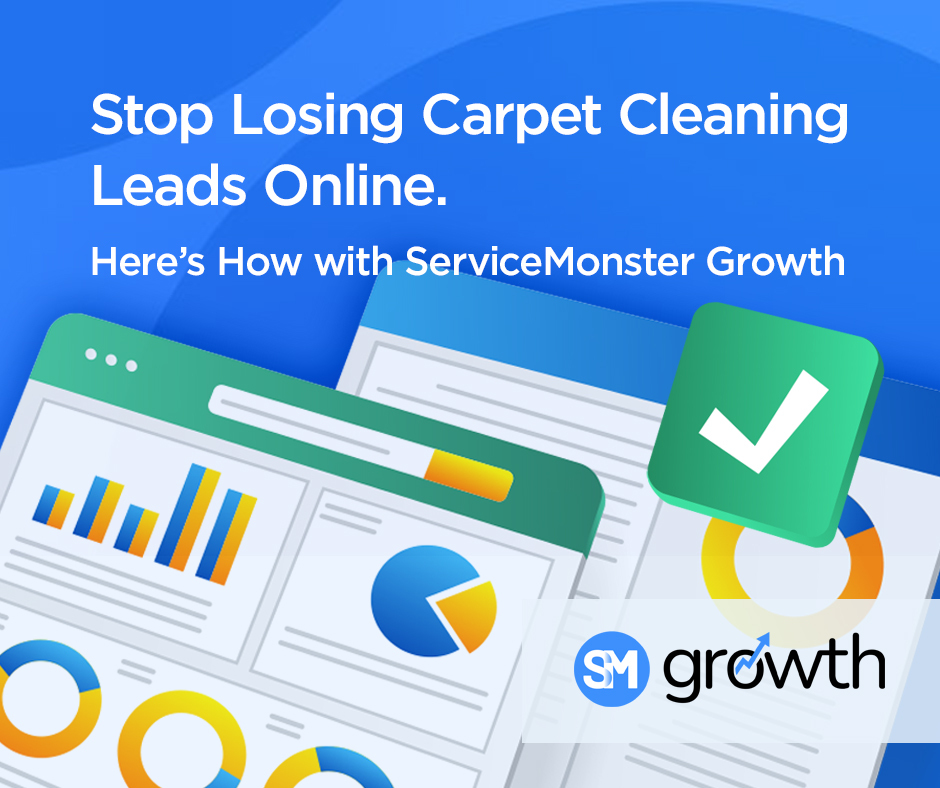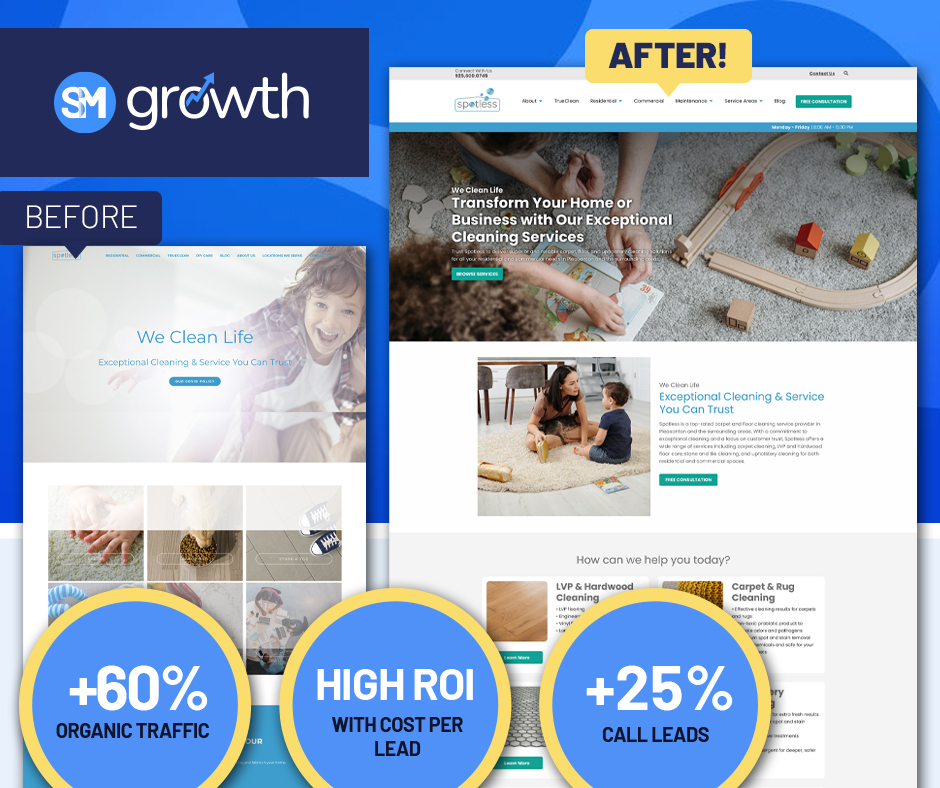How to Overcome Price Objections and Win More Service Sales


.svg)
Price objections are a universal challenge for service professionals, especially in industries like carpet cleaning, window washing, and power washing where competition is high and differentiation can feel difficult. When a potential customer says, “That’s too expensive,” it might feel like a deal-breaker—but often, it’s simply an invitation to dig deeper into the conversation.
Instead of viewing price concerns as rejection, successful service businesses treat them as opportunities to lead with value, educate the customer, and reinforce trust. Whether you're quoting a one-time job or ongoing maintenance, the key isn’t to drop your price—it’s to communicate why your service is worth every dollar clearly. With the right mindset and tools, like those offered by ServiceMonster, you can turn pricing pushback into a productive dialogue that results in more closed deals and stronger customer relationships.
Understanding Why Customers Push Back on Price
When a customer hesitates at your pricing, it usually doesn’t mean they’re uninterested—it means they’re unconvinced. Price objections are less about the number itself and more about what that number represents in the customer’s mind. Do they believe your service will solve their problem? Do they trust your process? Have you painted a clear picture of the outcome they’ll get?
In most cases, objections stem from uncertainty, not unwillingness. Whether it’s a lack of trust, unfamiliarity with your brand, or comparisons with budget competitors, the actual issue is often a gap in perceived value. Recognizing these underlying concerns enables you to respond strategically by reframing the conversation, clarifying benefits, and reinforcing your credibility, rather than pressuring a decision. Objections usually stem from:
- Lack of trust or familiarity
- Uncertainty about return on investment
- Comparisons with cheaper competitors
- Budget constraints or timing issues
Recognizing these underlying concerns helps you respond with clarity instead of pressure.

Communicate Value Before You Quote Price
One of the most effective ways to avoid price objections is to lead with value long before a number ever hits the conversation. Customers are much more likely to accept your price when they understand why it's worth it. Instead of jumping into a quote, first explain what sets your service apart from the competition.
If you run a carpet cleaning or power washing business, this could include your use of commercial-grade equipment, eco-conscious cleaning agents, certified technicians, or your near-perfect review average. But more than just saying it, you need to prove it.
That’s where ServiceMonster shines. The platform makes it easy to collect and showcase testimonials, track service history, display before-and-after results, and automate follow-ups that reinforce your credibility. By highlighting these differentiators upfront, you're framing the value of your service clearly—so price becomes a natural conclusion, not a point of friction.
Listen First, Then Respond Thoughtfully
When a customer says, “That’s too expensive,” don’t rush into defending your price. The smarter move is to ask a few clarifying questions and actively listen. Try:
- “Can you share more about what feels high?”
- “Is it the total amount, or something specific like hourly rate or materials?”
- “What budget were you expecting to work within?”
This empathetic approach reduces tension and uncovers the real concern—whether it’s sticker shock, a comparison quote, or a lack of understanding around your process. Once you know what’s truly holding them back, you can respond with confidence and clarity. Tools like ServiceMonster’s CRM help you log and track objections, so over time your team becomes sharper at handling them.
Frame the Conversation Around Benefits, Not Features
Customers don’t buy cleaning, restoration, or pressure washing they buy peace of mind, safety, and property value. Instead of rattling off tools or certifications, connect your service to the outcome they care about:
- Will it extend the life of their carpet or roof?
- Will it improve air quality for their kids or pets?
- Will it increase curb appeal or resale value?
With ServiceMonster, you can build proposals that map specific services to specific benefits, helping prospects visualize the ROI. When value is obvious, the price feels justified.
Use Social Proof to Build Confidence
Skepticism is normal—especially in industries where trust matters. The best way to handle doubts? Show proof. Share:
- Verified 5-star reviews
- Before-and-after photos from actual clients
- Short customer success stories (“We had the same concern, and now we’re thrilled…”)
With ServiceMonster’s Review Management tools and automated follow-up campaigns, collecting and sharing social proof becomes effortless—and consistent. This credibility not only helps close deals, it justifies premium pricing.

Offer Tiered Pricing or Packages
Not every customer needs the top-tier treatment. By presenting flexible service tiers, you give buyers a sense of control and meet a broader range of budgets without discounting your value:
- Basic – foundational cleaning or maintenance
- Standard – adds popular upgrades like stain guard or exterior window detailing
- Premium – complete service with all the extras
With ServiceMonster, you can build and present clear, professional estimates with options that feel customized—making it easier for customers to choose without hesitation.
Address Competitor Comparisons Head-On
If a prospect says, “Someone else quoted me less,” don’t get defensive. Say, “I appreciate you doing your research—can I share what’s different about our service?”
Then confidently explain what competitors may be leaving out:
- Do they skip pre-treatment or use lower-quality materials?
- Do they offer a satisfaction guarantee?
- Will they follow up after the job to ensure it’s done right?
Your job is to show that your service isn’t more expensive—it’s more complete. And with ServiceMonster’s quoting tools, you can easily back up your points with polished, branded proposals that elevate your professionalism.
Use Time-Sensitive Offers (Without Devaluing Your Work)
If you want to encourage a faster decision, try limited-time offers that add value rather than just reduce cost, such as:
- A free add-on service (like deodorizer or window spot treatment)
- Seasonal incentives for slower months
- Loyalty rewards for repeat customers
ServiceMonster makes it easy to automate these campaigns and send them to the right customers at the right time, increasing conversions without constant manual effort.
Stand Firm (When It’s Right to Do So)
Flexibility is important—but so is knowing your worth. If you’ve clearly communicated value and explored solutions, and a prospect still insists on a discount that doesn’t make sense for your business, it's okay to walk away.
Standing firm shows professionalism and signals that your service is premium for a reason. Customers who value quality over cost will respect your position—and those are the relationships worth building.
Final Thoughts: Make Objection Handling Part of Your Sales Process
Overcoming price objections isn’t about persuasion tricks—it’s about understanding concerns, communicating value, and building trust. With tools like CRM tracking, automated reviews, and professional quoting templates, ServiceMonster helps service providers present themselves as professional, reliable, and worth the price.
Explore how ServiceMonster supports service pros like you through every step of the sales process: ServiceMonster Features for Sales and Marketing

Frequently Asked Questions
What are the most common sales objections related to cost?
The most common sales objections tied to cost include statements like “It’s too expensive,” “I need to think about it,” or “I found a cheaper option elsewhere.” These often reflect concerns about whether the value matches the price. Effective responses should focus on clearly communicating the benefits, outcomes, and long-term savings of your service. Sales training that equips your team with confident rebuttals can help turn hesitation into a conversion.
How can I respond when a prospect says the service is out of their budget?
When a prospect mentions budget constraints, it’s important to empathize and then offer context. Use this opportunity to explain how your service provides long-term value and prevents costlier issues down the road. You might also consider offering a tiered service package or a payment plan to make the service more manageable. Service businesses often face this common sales objection, and having structured responses in place can help your sales team overcome it.
What strategies can I use to avoid pricing objections in the first place?
One of the most effective strategies is to lead with value, not price. Focus your messaging on what problems your service solves and what outcomes clients can expect. Sharing case studies, testimonials, and before-and-after results adds credibility. Using software like ServiceMonster, you can build custom estimates and marketing campaigns that reinforce your worth before price is even discussed.
How can I handle concerns about the cost compared to competitors?
If a prospect brings up competition, acknowledge that they’ve done their research, then confidently explain what differentiates your service. Maybe you offer a longer guarantee, better customer support, or more reliable scheduling. Price alone rarely determines customer satisfaction. Sales teams that understand their value proposition and communicate it clearly tend to win even when they’re not the lowest price point.
Should I ever lower my price to close a deal?
Lowering your price can be tempting, especially when cash flow is tight, but doing so often devalues your brand and trains clients to negotiate. Instead of slashing prices, offer added value or flexible payment options. For example, “We can’t lower the cost, but we can include a free add-on this time” is a more strategic response that protects your bottom line.
What are some effective strategies to reframe the conversation around value?
Reframing means shifting the discussion from “how much it costs” to “what the customer gets.” Ask questions about the customer’s goals and pain points, then tie your service directly to those needs. This not only validates their concerns but also shows how your solution delivers more than just a task, it delivers peace of mind, safety, time savings, or higher property value.
How can I train my sales team to handle price objections confidently?
Invest in regular sales training that includes objection-handling roleplay, scripts, and peer feedback. Teach your team to actively listen, acknowledge objections, and guide the conversation toward value. Tools like CRMs can also help track responses and build a library of proven rebuttals. With the right training, your sales process becomes consistent and your close rate improves—even when price is a concern. Equipping your sales team with strong sales prospecting strategies ensures they're engaging the right leads who are more likely to convert despite pricing concerns.
Is offering a payment plan a good idea?
Yes, offering a payment plan can be a great solution when customers express concern about making a significant purchase all at once. Flexible options demonstrate empathy and can help improve cash flow by keeping the sales pipeline moving. Ensure the terms are clear and sustainable for your business model.
How do I know when to walk away from a customer focused only on cost?
If you’ve clearly communicated your value and explored all reasonable accommodations, but the customer still insists on an unsustainable price, it may be time to move on. Focusing on customers who appreciate quality and long-term service is a more productive strategy. Not every lead is the right fit, and protecting your time and profit margin ensures healthier growth over time.


Recommended posts

Why Carpet Cleaners Lose Leads Online (and How to Fix It with ServiceMonster Growth)



Ultra Shine’s Organic Leads Jumped 25% Thanks to a ServiceMonster Growth Website



Spotless Sees 60% Increase in Organic Traffic After Launching ServiceMonster Growth Website





.svg)